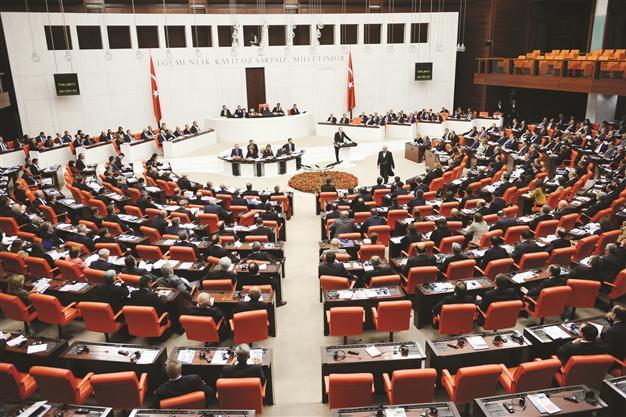‘State language’ article agreed by all except BDP
ANKARA

The Peace and Democracy Party (BDP) proposes an alternative to the article, calling for Turkish to be ‘state’s official language’ while ‘other mother tongues that the people of Turkey use can be used as second official language.’ DAILY NEWS photo, Selahattin SÖNMEZ
Parliament’s Constitution Conciliation Commission has reached a tripartite agreement on the article defining the language of the state as Turkish, with the sole objection coming from the Peace and Democracy Party (BDP).The ruling Justice and Development Party (AKP), the main opposition Republican People’s Party (CHP) and the Nationalist Movement Party (MHP) agreed during a session held on Aug. 27 to keep Article 3 of the current Constitution in its present form. With this agreement, the AKP has stepped back from its previous proposal of naming an “official language,” instead complying with the extant term “state’s language.”
The commission has further agreed on Article 1, keeping the phrase “The state of the Republic of Turkey is a republic.”
“I think there is no difference between the expressions of ‘official language’ and ‘state language.’ There is only a spelling difference. It can be the language is Turkish,” AKP deputy Ahmet İyimaya said during debates on language, receiving support from both the CHP and the MHP.
Alternative proposal
The BDP’s alternative proposal was as follows: “The state’s official language is Turkish. All citizens have the responsibility and the right to learn the official language. Other mother tongues that the people of Turkey use can be used as a second official language with the decision of provincial councils.”
During the same session, BDP deputy Bengi Yıldız voiced strong criticism over the formulation of Article 3.
“The expression saying ‘The state of Turkey, with its territory and nation, is an indivisible entity’ should not be included in the new Constitution. There is no such expression in modern constitutions. It is the nation which has a country and a state. We do not accept this expression. Many parties, including the Democratic Society Party [DTP], many parties of a tradition that I am a part of, were shut down on similar grounds,” Yıldız said.
In December 2009, the Constitutional Court banned the pro-Kurdish DTP, stating that “the party has become the focus of activities conflicting with ‘the state’s indivisible integrity with its country and nation.’”
‘One homeland’
Atilla Kart, meanwhile, deputy of the CHP, argued that the same expression within Article 3 actually resembled Turkey’s common and symbolic values and illustrated the foundational philosophy of the republic.
“What is aimed at here is actually ‘one homeland’ and ‘one state.’ That’s to say, a ‘common homeland.’
According to us, this is one of the most important establishing pillars in the founding of the republic, and the philosophy of the Constitution. The second pillar of the foundational philosophy is the concept of citizenship based on equality. The article should remain as it is,” Kart said.
















